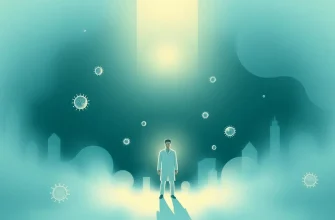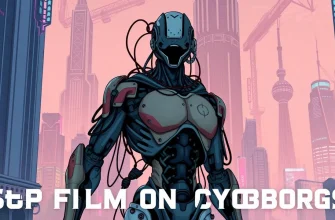The theme of organ donation has been a rich vein for science fiction, offering a canvas to explore ethical dilemmas, futuristic technologies, and the very essence of humanity. This curated list of 10 films delves into these themes, providing viewers with thought-provoking narratives that challenge our perceptions of life, death, and the sanctity of the human body. Whether it's through dystopian futures, advanced medical technologies, or moral quandaries, these films offer a unique perspective on what it means to give and receive life.
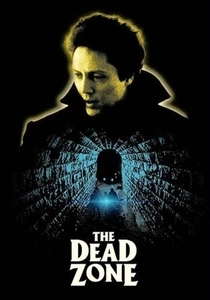
The Dead Zone (1983)
Description: While not directly about organ donation, the film explores the consequences of a man who wakes from a coma with psychic abilities, including visions of a future where he must decide whether to kill a man to prevent a catastrophe, touching on themes of life and death.
Fact: Directed by David Cronenberg, known for his body horror films. The film is based on Stephen King's novel of the same name.
 Watch Now
Watch Now 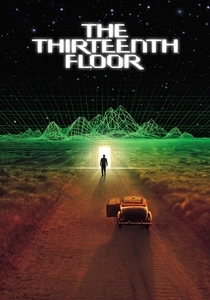
The Thirteenth Floor (1999)
Description: This film explores virtual reality and the concept of living in simulated worlds, where characters must navigate through layers of reality, touching on themes of identity, existence, and the control over one's life and body.
Fact: The film is loosely based on the 1964 novel "Simulacron-3" by Daniel F. Galouye. It was released in the same year as "The Matrix," leading to comparisons between the two.
 Watch Now
Watch Now 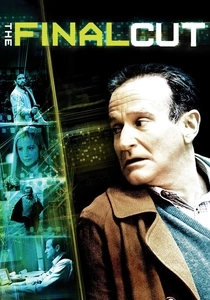
The Final Cut (2004)
Description: In a world where memories can be recorded and edited, a "cutter" must decide what to include in a person's "rememory" after their death, touching on themes of privacy, identity, and the ethics of memory manipulation.
Fact: Robin Williams plays the lead role, showcasing his dramatic acting skills. The film was shot in Vancouver, Canada.
 Watch Now
Watch Now 
The Island (2005)
Description: Set in a seemingly utopian facility, residents are told they are survivors of a global contamination, but in reality, they are clones bred for organ harvesting. The film follows two clones who discover the truth and attempt to escape.
Fact: Michael Bay directed this film, known for his high-octane action sequences. The film's concept was inspired by the 1979 film "Parts: The Clonus Horror."
 Watch Now
Watch Now 
Repo Men (2010)
Description: In a future where artificial organs can be bought on credit, repo men are tasked with repossessing these organs from those who default on payments, often leading to deadly consequences.
Fact: The film features a unique blend of action, sci-fi, and dark humor. Jude Law and Forest Whitaker star as repo men in this gritty tale.
 Watch Now
Watch Now 
Never Let Me Go (2010)
Description: In a dystopian world, students at Hailsham boarding school are raised to become organ donors. The film explores their lives, loves, and the inevitable fate that awaits them, questioning the ethics of their existence.
Fact: The film is based on Kazuo Ishiguro's novel, which won the Nobel Prize in Literature in
 Watch Now
Watch Now 
The Adjustment Bureau (2011)
Description: While not directly about organ donation, this film deals with fate, free will, and the manipulation of human lives by a mysterious organization, which can be seen as a metaphor for controlling one's destiny, akin to the control over one's body in organ donation scenarios.
Fact: The film is based on a short story by Philip K. Dick. Matt Damon and Emily Blunt star in this mind-bending thriller.
 Watch Now
Watch Now 
The Host (2013)
Description: In this adaptation of Stephenie Meyer's novel, Earth has been taken over by an alien species that uses human bodies as hosts. The film explores themes of identity, autonomy, and the human spirit through the lens of a body-sharing scenario.
Fact: Saoirse Ronan stars as Melanie Stryder, whose body is shared with an alien soul named Wanderer. The film's director, Andrew Niccol, also wrote the screenplay for "The Truman Show."
 Watch Now
Watch Now 
In Time (2011)
Description: Time is currency in this dystopian future, where people must "buy" time to live, leading to a society where the rich are immortal and the poor must constantly work to survive. The film touches on themes of life's value and the ethics of time as a commodity.
Fact: Justin Timberlake plays the lead role, marking a significant shift from his music career to acting. The film was directed by Andrew Niccol, who also wrote the screenplay.
 Watch Now
Watch Now 
The Lazarus Effect (2015)
Description: A group of researchers develop a serum that can bring the dead back to life, but the consequences of their experiment lead to unforeseen horrors, touching on themes of life, death, and the ethics of playing God.
Fact: The film's title refers to the biblical story of Lazarus, who was raised from the dead by Jesus. It was originally titled "Reawakening."
 Watch Now
Watch Now 

